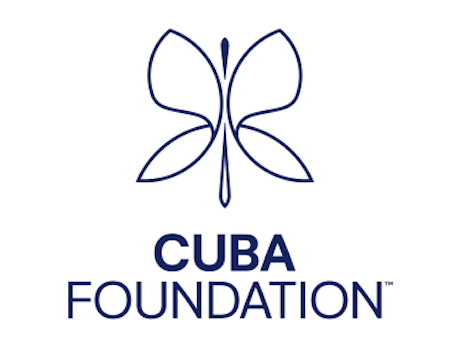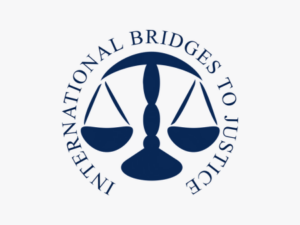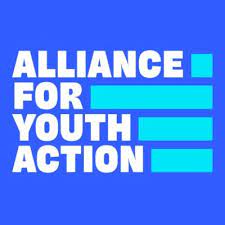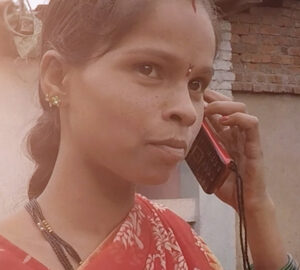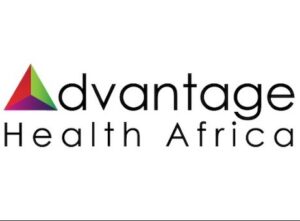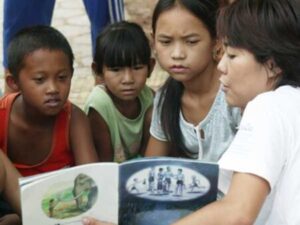The Cuba Foundation is a philanthropic platform that inspires, promotes, and facilitates sustainable development projects that directly benefit the Cuban people.
Gustavo Arnavat of the Cuba Foundation spoke with Erica Edwards on April 12, 2023. Click here to read the full conversation with insights highlighted.
Erica Edwards: Could you please introduce yourself, your role in your organization, and the problem you work to address?
Gustavo Arnavat: My name is Gustavo Arnavat, and I am the founder and the executive chairman of the Cuba Foundation which I established about two years ago to serve as a philanthropic platform. We bring together funders, because it’s very important that they’re part of this process, not just to provide capital but also ideas, and also their own human resources. We focus on promoting economic development in Cuba, with a special focus on the private sector. There’s a lot in there to unpack, but we’re trying to do something that no one has ever really done before, at least certainly not since the revolution in 1959.
Cuba underwent a revolution back in 1959 that totally transformed Cuba’s political system, economic system, cultural system, and social system. It led to radical changes, depending on who you talk to, for better or for worse. One thing is very clear, is that the socialist model when it comes to being productive or helping to command economic development in the country, has fallen short of what the revolutionary leaders had expected at the beginning. I think that the government, at the highest levels over the last 15 years or so, has recognized that and, increasingly, the importance that the private sector can play in helping to encourage economic development.
This is partly because of the realization that their own economic model has fallen short, but also by looking at other socialist countries like China and Vietnam, that have adopted systems involving private property and free enterprise. They think that those models have done some good in promoting economic growth in those countries, so they’ve been slowly coming to the realization that they should do something similar in Cuba. The question is, what? They want to do it in a way that is loyal to their own history, political system, and economic system, and we want to participate in that. We want to be at the forefront of working in that milieu and changing environment, to see what we can do to help bring our own skill set, knowledge, and capital to help that process along.
Keeping in mind that we don’t live in Cuba. I was born in Cuba, but I don’t live in Cuba. We have to respect the fact that Cuba is a sovereign country, and we have to work with the government it has, just like the United States and other countries work with all forms of governments around the world, regardless of whether they adhere to their governing principles, because the important thing is to help the people of those countries.
Erica Edwards: What makes your approach distinctive from others?
Gustavo Arnavat: There are very few people involved in Cuba. I’ll spare us the political economic history of Cuba, but as you know, the Soviet Union and other Eastern Bloc countries saw Cuba as a sister socialist country, and they provided significant subsidies. That system was not sustainable, as witnessed by the fact that when the East Bloc crumbled, those subsidies went away, and Cuba has been struggling ever since.
What you have, in terms of actors outside of Cuba, are some governments that individually and also collectively, for example, in the case of the European Union, try to provide economic and development assistance. Then you have some NGOs that try to focus on particular areas, for example climate change, that do get involved in Cuba to an extent, but a lot less than they otherwise would, because of the US embargo, which is very challenging for people in the United States who want to get involved in Cuba, regardless of their motivations. It also makes it difficult for Cuba to be able to work with US-based institutions, although not so much with institutions in other countries.
Then there are a small number of organizations led, primarily, by Cuban Americans such as myself, that have deep roots in Cuba and want to help the people of Cuba. They’ve set up humanitarian assistance programs, or programs that focus on feeding the people, on taking care of the elderly or children, providing that kind of humanitarian assistance. That’s not what we do. We’re involved in longer term development. However, what’s distinctive about those organizations is that, because of their strong dislike and distrust of the Cuban government, many of the leaders of those organizations felt that their families were targeted, or certainly suffered, in the early days of the revolution.
They refused to engage with the Cuban government, and so they worked, for example, through the Cuban church, which is largely independent. To do that, like everything else in life, there are costs and benefits. When they do that, there is the opposite problem, which is that the Cuban government doesn’t trust them. They think that they’re trying to undermine their society, and so they’re going to, in some ways, restrict their activities. What’s unique about us is that we are willing to speak with Cuban government authorities, not so much to collaborate with them or to partner up with them, but because we need to have their buy-in to do the kinds of things that we’re trying to do. All of our work involves the Cuban private sector, so it doesn’t involve helping the Cuban government directly. If we’re helping the Cuban government, it’s only to help them understand the benefits of the private sector and work with philanthropists to promote that.
We don’t represent any government whatsoever. We are individuals, and this is something that can be a little bit challenging, trying to explain to the Cuban government why we feel the way that we feel. Why we’re doing this, not with a profit motive, but because we simply want to help. We’re trying to do something that has never been done in Cuba, which is philanthropy on the scale that we’re thinking about, working with the Cuban government in the sense that we don’t want to do anything that’s illegal or inappropriate. I don’t think anyone else is doing that, quite frankly, in the United States at least.
Erica Edwards: Why would you say you do this work? If I were the Cuban government, I see this Cuban American saying he wants to come in and foster all these relationships, and work with us to do some amazing work in Cuba with no benefit. Why are you doing this work?
Gustavo Arnavat: That’s a great question, because I’m sure that’s what they’re thinking and that’s really one of our biggest challenges. The way I have tried to address that is by first trying to socialize the idea of philanthropy, of philanthropic work in general. I left Cuba when I was six years old, and I didn’t return until 2015, thanks to President Obama and the opening that he engineered towards the end of his administration. I worked for President Obama, I was the representative of the United States at a multilateral development bank called the Inter-American Development Bank, the IDB, and I was nominated by him and confirmed by the US Senate. I began to work with the White House after that announcement was made, at the end of 2014.
At that point, I began to return to Cuba in that capacity, and worked with the US Chamber of Commerce and other organizations interested in pursuing business opportunities in Cuba. In the end, it was a very challenging environment, both because Cuban law didn’t really permit the kind of free enterprise and the kinds of investments that people would be interested in, and also because, under the US embargo, it would be very difficult to do it. And as we know, once President Trump took over, had I or others made those investments, it would’ve been very difficult to follow through on those investments. There’s a lot of political risk on both sides of the Florida Straits.
I’ve been to Cuba 16 or 17 times and I usually will meet with representatives of the government. I’m very transparent, I’m very honest. They know that I’m not there to talk about the kinds of issues that are very controversial in Cuba, because other people are doing that, I don’t need to do that. What I’m really interested in is economic development, and I try to stay in my lane. We have very transparent, very honest conversations. I’m respectful, of course, just like they’re respectful. Over time, I think that we’ve built trust, they’ve gotten to understand, at least I hope, that I’m not a CIA agent. I’m not trying to undermine their society.
As far as what I get out of it. They’re Cuban, I’m Cuban, and we’re all tethered to the island in some way. They derive a lot of satisfaction, just like I and many other Cuban Americans do, in knowing that we can do something to help Cuba. That’s the pleasure we get from being able to contribute. Not all Cuban Americans are in a position like I am, to be able to devote so much of my time to do this, there’s a huge opportunity cost for me. As my wife will remind me, on a periodic basis. But it’s something that I really want to do. It’s part of who I am. I’ve been thinking about doing this for many, many, many years. And I’m doing it.
Erica Edwards: Can you share an example that illustrates the impact of your work?
Gustavo Arnavat: We’ve only been around for a couple of years, and the environment in Cuba is very challenging, for the reasons that I already alluded to. There’s the US embargo, which has very hard restrictions in terms of the kinds of work that we can do in Cuba, even when it comes to something like humanitarian assistance. Everything is very carefully monitored in the United States. I’m a lawyer, and we work with three major law firms in the U.S. on a pro bono basis who give us terrific advice. Even if we find a program or funding idea that our lawyers tell us is perfectly legal, then we have to convince a US bank to transfer those funds.
That’s where the problems begin, because the lawyers for those banks in the compliance departments will ask a lot of questions, and they tend to be extremely conservative. They will not want to engage in those kinds of transactions, not because they’re illegal, but because they’re going to attract the attention of the US Treasury Department, and others, asking lots of questions about why funds are being transferred to Havana on a regular basis. They may open themselves up to an audit, which would be extremely expensive to address, so it’s very challenging to do this kind of work in Cuba.
What I’m getting at is that over the last couple of years, we have spent the bulk of the time trying to figure out, first of all, who we are and what we’re trying to do. We began very highly focused, working in the education area, and that expanded to three other areas. We’re doing a lot of things, and I come from Wall Street, so I apply some of my Wall Street background, including portfolio management ideas, not putting all of my eggs into one area or sector of the economy.
We’ve already funded a few things that were easy to fund. For example, we provided a partial scholarship to one of Cuba’s top drummers, a young 17-year-old man who we’re helping to fund his expenses at the Berkeley School of Music up in Boston.
Erica Edwards: What are the other sectors that you guys branched from?
Gustavo Arnavat: We’re involved in four verticals. One of them is entrepreneurship and innovation. We work with the private sector, companies that are already established, or trying to establish themselves, trying to give them grants to do their work, especially when they have social entrepreneurship types of programs.
We’re in the educational exchange sector. We’re working with the US State Department, they have a program called 100,000 Strong in the Americas. The idea is that any given year, we have 100,000 students from the United States studying in Latin America and the Caribbean, or the other way around. They started a program for Cuba, before Donald Trump came into office, then that went away. We’re trying to reestablish that there, and our role there primarily is to find the funding for it, using our network to be able to do that.
Then, sports and development. We don’t just want to do sports because it’s fun to play sports, but there has to be a development aspect. We’re trying to find, for example, fields that have been discarded in Havana, where youth used to play, and go in there and try to restore those fields and figure out a financial model so that those fields can be maintained going forward, with the private sector. We’re very excited about doing that.
Finally, a broad area, which is cultural and natural heritage. That includes everything from restoring historic buildings to preserving lakes, beaches and rivers, and those kinds of things. It’s a huge gamut. It does not involve anything in the healthcare area, or education in the sense of primary or secondary education, because those are reserved by the Cuban Constitution only for the state. We want to stay away from anything that might be controversial, we want to focus on the areas where we’re going to have the maximum impact.
To answer your question, we haven’t been around long enough to be able to say, “Here’s a project that we set up, and here is the impact that we’ve had.” What I can tell you is that, because of my background at the IDB, one of the things that the United States government focused on, and I in particular focused on when I was on the board of executive directors, is on having an impact. What’s called development effectiveness. You can’t do that unless you can measure impact, and you can’t do that unless you set goals at the very beginning. You can’t set those goals halfway through, or at the end, because then people kind of cheat. At the very beginning you say, “Here’s the program, these are the objectives.” And then two or three years later, you measure to see whether or not you reached those objectives. If you didn’t, that’s okay, as long as you learn from it. You learn those lessons and then you incorporate those lessons into the future for other kinds of programs. Of course, if you succeed, then you replicate the program. In reality, you will have both successes and failures.
In terms of the terms of an example of where we’ve had impact so far, when I began to work on this a couple of years ago, I was specifically told by people who know Cuba quite well, because they grew up in Cuba and lived many years in Cuba, was to stay away from the term philanthropy. While that’s a very accepted term in the United States and many other countries, in Cuba, philanthropy is the equivalent of NGOs. And NGOs are the equivalent of the CIA. I mean, this is somebody generalizing, but the Cuban government, going back to the question you asked before, believes that nobody does this because they want to do it for fun. There has to be something else going on, so anyone who comes to Cuba to do ‘philanthropy,’ must be funded by some kind of US government agency trying to undermine our system.
I almost fell off my chair a few months ago when I was meeting with four former ambassadors, among the most senior directors of Cuba’s Ministry of Foreign Affairs. And by the way, all women, which was great. I’ve worked everywhere in Latin America and the Caribbean and this was the first time where the meeting was not only run by a woman, but the entire leadership in that meeting were all women. In particular, the former US Cuban ambassador to Namibia said to me, “You know Gustavo, we’re interested in organizing a conference here in Cuba on philanthropy, and we’re wondering if you could help us with that.” I couldn’t believe it, that she used the word philanthropy.
And so, they trust us enough to be able to do something like that, and we’re already working on an agenda. Of course, we work very closely with them and other organizations in Cuba, and around the world, to put together a one or two-day conference on philanthropy. Part of it will be the nuts and bolts of philanthropy, because we do want to socialize the issue within Cuba. At the same time, I really think it’s very important that we don’t do what a lot of Americans and a lot of foreigners do when they go to Cuba, which is, they tell the Cubans what to do and how to do things better. That just doesn’t really go very far. It’s not the best way to persuade the Cuban people to do anything. I think it’s important to see this as an exchange of ideas. There are some things that I’m convinced we can learn from Cubans, so we want to hear what they have to do. There are a few NGOs in Cuba, about seven of them, and we want to see what they do, what their lessons are, and how we can learn from them. Then we’ll share, from the US side, what lessons we have.
Erica Edwards: What insights or teachable lessons can be taken from your work that others could use?
Gustavo Arnavat: You have to be persistent. First of all, you have to have a very clear idea of what it is that you’re trying to do, and why it makes sense. I’ve been on Earth long enough that I’ve tested a lot of these ideas, and I feel very secure in myself and these ideas. I have over three and a half decades of work in finance on Wall Street, as an attorney, as an investment banker, then as the top development finance banker for the United States, when I was at the IDB, for Latin America. I have a good sense of what works, but of course, we’re always learning and we have to improve in that model.
First, you have to have a really good sense of who you are and what you’re trying to accomplish, and then, be very persistent. Identify the resources that you need on the funding side. Go talk to the right people, make the right arguments, and be persistent. Be kind. All the lessons you learned in kindergarten. Be nice to people. Try to understand where they’re coming from, appeal to them, those kinds of things. Everyone’s different. Everyone needs a different approach. In Cuba, the same thing. Be very persistent and try to sell them on the idea of why this is right, why it’s in their interest to do something like this. Be very, very persistent. Not everyone has the luxury, because time is money and at some point, people run out of money and have to stop being persistent.
I’m a big believer that you can’t have sustainable economic development unless it’s inclusive, in terms of lots of different things, especially gender and race. We’re looking for examples in projects involving Afro-Cubans. We found what we believe to be the only clothing label in Cuba, produced by a mother and daughter team, who make textiles and produce clothing for Afro-Cubans. We’re trying to help them develop that brand, and maybe export to the United States or connect them with some fashion designers there.
It’s a challenge to work with a socialist government that believes they have solved every single social problem in Cuba, including gender and racial disparities. We don’t want to insult them, but we’re trying to say they haven’t gotten it quite right yet. We want to be involved in these areas to help promote those greater social goals.
There’s a company called Vélo Cuba, which just started about seven years ago by a woman who is a former engineer. She’s phenomenal, and going back to what I said about using some of my Wall Street experience, I invest in people, not in companies. We decided that she is someone who was just outstanding in terms of her ideas and her tenacity. She set up a company where she acquires used bicycles, fixes them, and then rents those bicycles. They are the number one player right now when it comes to bicycles in Cuba. They have a program where, over a course of a month, they train people, mostly women, to run a company like theirs. Over the course of that month, they give them business skills, show them how to fix bicycles, and how to be involved in the bicycle renting business. We’re very excited to be working for them, because I know that they’ve succeeded so far, they will continue to succeed.
We gave them a $10,000 grant that will enable them to teach a hundred people, again mostly women, over the course of a year. That will double their capacity, because they’ve trained about a hundred people over the last seven years, so now they will be able to train as many people in just one year. That’s also going to allow them to start an affiliate on the other end of the island, in Santiago, Cuba, because we are also trying to be involved throughout the island. Everyone, when they think of Cuba, only thinks of Havana, but 80% of Cubans live outside of Havana. We’re going to be promoting these ideas all over the island, but of course, the low-hanging fruit is going to be in Havana initially.
Erica Edwards What are the limitations that you’re facing in trying to solve this problem, and what are the things that you can address through it?
Gustavo Arnavat: The biggest limitation, and I think I already touched on this, are the legal limitations both in the United States and in Cuba. There are also social limitations. There are lots of people, most of my Cuban American compatriots, or expats, live in Miami, and they have very strong views about Cuba, and about the US embargo towards Cuba. They tend to favor the embargo, despite the fact that it has been an abysmal failure. It is against US values, it’s against US national security, and against strategic and commercial interests. It’s also not helping anyone in Cuba. Empirically, I think I could say that with a high degree of confidence, because we’ve been trying this for over 60 years and it hasn’t worked.
I do want to emphasize that we’re not an organization that’s focused on getting rid of the embargo, or trying to force regime change in Cuba. That’s not for us to do. We are very focused on economic development. We’re not getting involved in advocacy in the United States to liberalize the embargo. We’re not getting involved in Cuba to have them change their government. We certainly will propose some ideas, in order to allow the private sector to flourish there, and also philanthropy to be able to invest there, but we’re not about advocacy, in that sense. Nonetheless, our biggest challenge is dealing with the Cuban legal system and elements of the government that don’t quite understand who we are and what we’re trying to do. There are individuals who are more entrepreneurial than others, but nonetheless, it’s a system that by and large does not incentivize risk taking. In the government, there are a lot of people who I think like our ideas, but there’s not a lot of upside for them to approve our projects. Even though there’s maybe nothing illegal about them, there’s a lot of downside if things don’t go the right way. So those are the biggest challenges, changing minds and getting them to understand that this is a very noble, good faith attempt to help people in Cuba.
When people think of philanthropy, the first thing they think of is the ultimate beneficiaries. Who is going to benefit from these programs? I like to think about it in a broader sense, because I see the donors or the funders themselves also benefiting. There’s a huge appetite in the United States, not only among Cuban Americans, but others who want that for domestic political reasons. And so this is also about, in some ways, allowing Americans to pursue their interests, and wanting to do things in Cuba to help the Cuban people. Why should they not be able to do that? So we’re trying to develop a platform that allows them to do precisely that, and be as involved as they want to be.
Erica Edwards How are you catalyzing or advancing system level change in your field?
Gustavo Arnavat: That’s a great question, because ultimately, that’s what we’re about. We can’t do everything. As I said, I represented the United States at the Inter-American Development Bank, and every year we provide about $12 billion of financing for all kinds of projects in 26 different countries, in Latin America and in the Caribbean. A lot of my fellow directors from the borrowing countries were complaining that they didn’t have enough capital for us to be able to deploy in the region. I pointed out that, at best, even if we doubled our lending capacity, our portfolio of loans would only represent 1% of the total financing needs, if that, in Latin America.
We’re never going to be an organization that will solve all problems in Cuba. We’re trying to lead by example, and be a catalyst that way. We’re an open book, and we tell people, “If you want to copy any of these ideas, great. Hopefully you’ll give us some credit, put a little footnote.” But if we serve as an example to others, and others copy those ideas, we’re going to feel very successful. We’re working on a website, which we haven’t yet launched publically, but once that happens, I think the catalytic power will be unleashed as others see the projects we are working on. People have called us pioneers, at least pioneers in the making.
We have other projects in the pipeline that are wonderful projects. I’ve been working with a gentleman in Miami Bay, who’s Argentine but went to Cuba and fell in love with it. He developed a musical play called Alma, working with some subject matter experts. The first part is about when the Europeans go to Africa to capture slaves and the second half is about the offspring of those slaves, the Afro-Cubans, about 400 years later. He engages with kids from the neighborhood, the vast majority of whom are Afro-Cubans, and is starting to offer after school and weekend classes, which we will help fund, to teach these kids acting, singing and dancing. There is a lot of potential in developing this talent, it could be very helpful in terms of the economy and tourism, which is so important for the government.
We are putting together a program to get Afro-American students, at the HBCUs, to study in Cuba. We’re working with an organization called Partners of the Americas to do this. African Americans are generally very interested in what’s happening in Cuba, but the embargo, I think, scares away a lot of people, so we need to demystify that.
The Congressional Black Caucus has been very involved in Cuba for many years, and sometimes they send congressional delegations there. I’ve always had this idea that those 40 or 50 members of the Congressional Black Caucus would overwhelm the five or six Cuban American members of Congress, who have been such stalwart supporters of the embargo. The challenge, however, is that unfortunately when some of these members go to Cuba and they come back, they’ll say all kinds of wonderful things about Fidel Castro and about the revolution, and that tends to work in the opposite direction. Let’s face it, Cuba is still considered, I don’t want to say an enemy state because that’s a strong term, but the United States and Cuba don’t get along. And Cuba does have a very potent intelligence service, and they’re trying to penetrate our intelligence services and government institutions. So when a member of Congress goes to Cuba and they come back and say they saw anything positive about the Cuban Revolution, it tends to undermine their authority back in the United States. However, I think they can come back and be ambassadors for what they found. As Americans who identify with other people of color throughout the Caribbean, I think that they would be impressed with how Afro-Cubans are involved in so many aspects of Cuban society, so I’m very excited to explore that program.
Erica Edwards: How do you see your work evolving over the next five years?
Gustavo Arnavat: First of all, we need to consolidate a lot of our ideas, or our model, and it’s really important to do that to be able to scale up, which is what we’re trying to do. At the same time, there are a lot of changes going on in Cuba. One of the things that makes this challenging, but also very exciting, is that we think that we’re going to be able to inspire change and be an example. It’s exciting to be part of that, and at the same time, there’s a lot of risk involved.
Cuba is going through a transformation. A lot of Cubans are challenged from an economic perspective, it’s leading to all kinds of social problems. Last year, over 300,000 Cubans left the island, even though the United States was not issuing visas. About 250,000 went to the United States via the Mexican border. They flew to Nicaragua where there are no visa requirements, and would hire coyotes that were funded by their relatives in Miami and other places, who would take them up to the United States, through some very difficult terrain. They’re leaving for different reasons, I think primarily for economic reasons, but a lot of them are also dispirited. They feel hopeless. It’s a shame because when I went to Cuba, in 2015, after I had left many years before, I found a country that had challenges economically, but there was a lot of hope because of the opening that was being pushed by President Obama. They felt that the embargo would finally be lifted. A lot of people started getting involved in private activities, like starting restaurants, taxi services, those kinds of things.
In the last several years, when I’ve gone back, I find just the opposite. People are very dispirited. There are still some entrepreneurs who haven’t given up hope yet, but a lot of people just don’t see a lot of hope. At the same time, they’re not about to take up arms against the government because that’s very risky, and they don’t want to do that. Cuba has now been more than two generations under socialism and, for better or for worse, the government has to play a daily role in your lives when it comes to providing citizens with security, healthcare, education, and a lot of other programs. I don’t know which way this is going to go, but there are people in Cuba who are still very loyal to the government, but they also realize that they need to eat, they need to work, they need money. Despite the love that they have for their mother country, they leave. They come to the United States because of the opportunities the United States affords them.
Erica Edwards Is there anything that we didn’t cover, that you feel is important to add to this conversation?
Gustavo Arnavat: Like I said, Cuba is a socialist government, and you have to ease your way into that system and work with them. There are a lot of people in the United States, in my community, who feel like they’re the Adam Smith type of capitalist. They’re like, “Get rid of all the laws. Give me my log cabin. It’s the market forces.” That’s just not going to fly in Cuba. First of all, it’s a naive way of thinking, in general. But second, the Cuban government’s not going to allow that so we have to find smart ways of getting them to accept, first, the fact that their economic system is not performing where it should be. Second, that a solution has to include the private sector. And third, what are the alternative ways of doing that?
We think we have an approach, which is through philanthropy, that we think works. It’s been proven in other places to work, but it’s going to take time. Even if our returns in some instruments are not financial returns, because at the beginning they’re not going to be, we have metrics and we will rigorously and objectively judge our performance, and get our funders involved as well. We’re very, very excited about this.
Erica Edwards: Thank you so much for talking to me about your incredible work.
Click here to read the full conversation with insights highlighted.
Erica J. Edwards is a multimedia journalist based in NYC. She has worked at New York Public Radio, WTAE, WMUR, and the Mayor’s Office of Media and Entertainment (MOME). Edwards was a LEDE Fellow within the Solutions Journalism Network. She is deeply passionate about bringing solutions journalism to the forefront of the public’s news diet through social media.
* This interview has been edited and condensed.
Read insights from social innovations in philanthropy.

